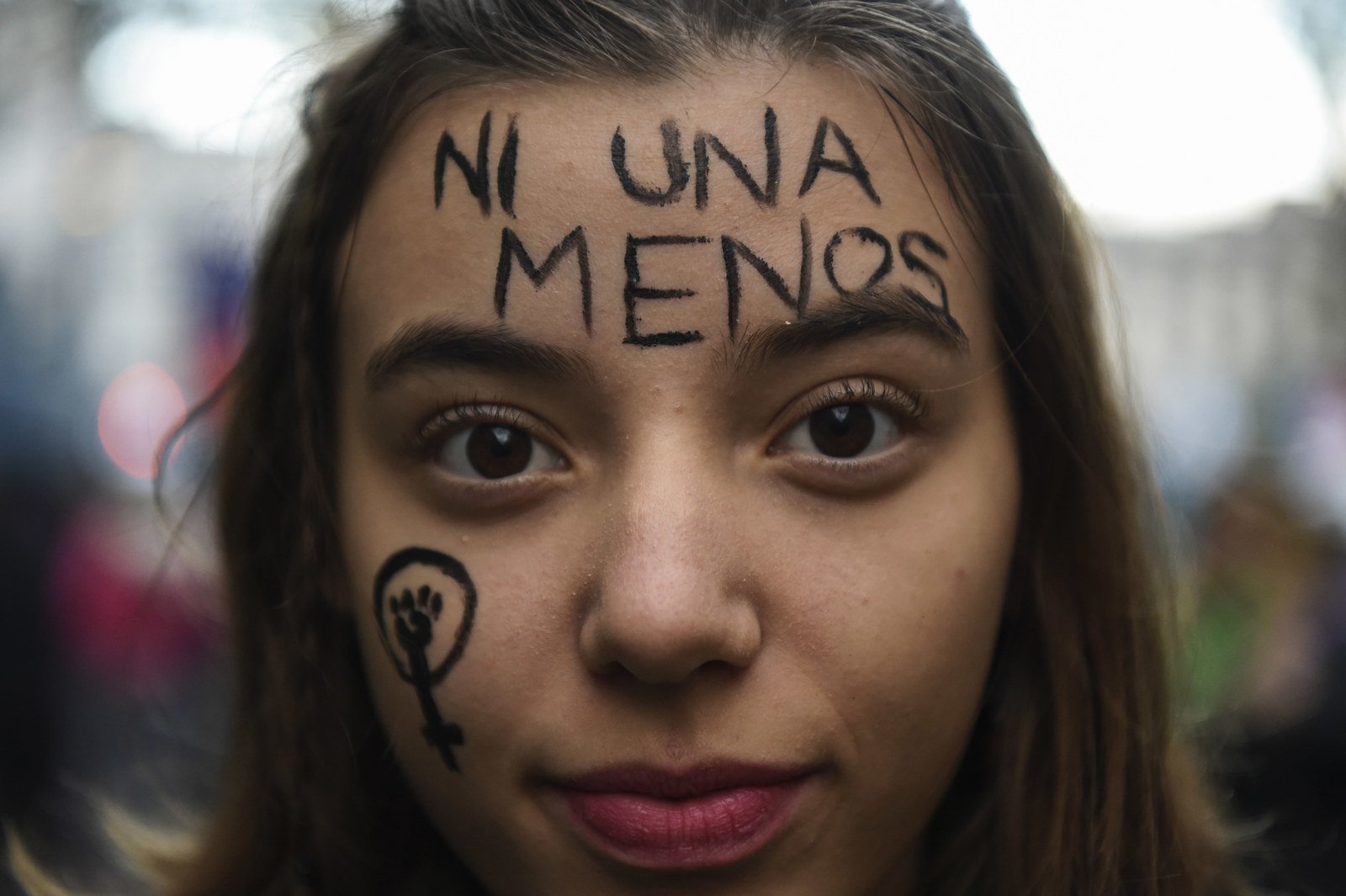
The pregnancy test's positive result fell like a bomb on M's life. She was 26, had just been chosen for a doctorate scholarship, and her two-year relationship with her boyfriend, with whom she lived in an apartment in Buenos Aires, was sinking. Apparently, her birth control had failed two months earlier, thanks to an interaction with an antibiotic that had been prescribed by her doctor.
Abortion is illegal in Argentina, so M sought the advice of her friends. After two weeks of anguish, she ended up getting a box of misoprostol. The drug is used to treat ulcers — but it can also induce miscarriage. She took the drug alone at home and suffered horrible pain for 12 hours, all while bleeding much more than during a normal period. In those hours, she remembers, she feared for the worst. (M asked that BuzzFeed News only publish her first initial, for fear of legal consequences and her family is unaware that she had an abortion.)
The relief, she said in a phone interview with BuzzFeed News, came only 48 hours later when she went to the hospital and confirmed that there were no issues. Her story of anguish, pain, and uncertainty is one shared by the approximately 400,000 to 500,000 Argentinean women who resort to clandestine abortions every year in the country. (Estimates are uncertain and numbers vary according to the methodology used.)
According to the Ministry of Health, at least 10,000 women are admitted to hospitals with complications due to abortion every year. In 2017, according to official data, there were at least 60 deaths attributed to illegal abortions in the country.
On Wednesday, the country's Chamber of Deputies, the lower house of the Argentine National Congress, will vote on a bill that authorizes abortion without restrictions until the 14th week of pregnancy. Under the current law, women who obtain abortions can be jailed. The only exceptions are in cases of rape or when the life of the mother is threatened. The proposal would also legalize abortion without a time limit if birth defects are found in the fetus.
The outcome of the vote is far from certain. A whip count from La Nacion, a local newspaper, found that 119 deputies plan to vote against the bill and 111 are for it. The decision rests in the hands of 24 deputies who have declared themselves either undecided or who refuse to say which way they intend to vote.
The way forward won't be easy, even if the deputies do approve the bill. The next step would be to go through the Senate, where analysts believe there is a strong majority against abortion. The hope of those in favor of the project is that a victory this Wednesday energizes public opinion enough to overcome the opposition.
Activists — working with groups like Ni Una Menos — have taken to the streets and grown into a revitalized national movement since President Mauricio Macri asked Congress in February to vote on the issue.

Macri, who opposes abortion, isn't very popular in Argentina right now, thanks to the country's economic situation — in addition to budget cuts, the country is seeking a $50 billion loan from the IMF. Macri said he would sanction the legalization of abortion, if approved by Congress.
On this year's International Women's Day, tens of thousands of women across the country — many of them high school students — took to the streets of the capital wearing green scarves in support of abortion rights. The protests have continued since then and the green scarf has become a symbol of the struggle of these women.

"What we are seeing at the demonstrations is a massive growth of support for abortion in all provinces," anthropologist Miranda González Martín, who is part of the abortion rights campaign, told BuzzFeed News. "This could cause us to have the votes to approve the new law, not because of the deputies' beliefs, but so they're not acting against their own electoral bases."
But anti-abortion groups are also heavily mobilized. Although Pope Francis didn't release a statement specifically mentioning the vote this week, the Argentine Bishops' Conference released a document entitled "Toda vida vale" ("All Life Matters") in which it openly opposes the bill and affirms that society has an obligation to extend human rights, including to "the most vulnerable."
Catholic groups are also knocking on the doors of deputies to pressure them. In an escalation of the lobbying, deputies who support the bill or are undecided have been given boxes with small plastic fetuses inside, mirroring tactics seen in the US.
Hoy los diputados están recibiendo en sus despachos estos “bebitos” de silicona. Los envía una diputada del oficialismo. https://t.co/hlBWN2wXLs
In practice, the ability to voluntarily terminate a pregnancy is within reach of Argentinian women who can afford it. A box of misoprostol is sold for 4,000 pesos, or US $155. Women who seek a surgical abortion in safe conditions can find doctors who agree to do the procedure for up to $2,000 — something inaccessible to the vast majority of the population, according to abortion rights activists.
Those who can not afford it must resort to the public health system when things go wrong and are under threat of being reported to the police when they do. One case that shocked the country and set the abortion rights campaign on fire was a 10-year-old girl from the northern province of Salta, who became pregnant after being raped by her stepfather.
Despite his mother's appeals, and the rape victim's compliance with the current law, Salta's governor, Juan Manuel Urtubey, had recently gone beyond the national ban, dropping the amount of time into a pregnancy where abortion was legal to 12 weeks, even in the event of rape. The victim had her abortion denied. But faced with national uproar, Urtubey retreated.
This post was translated from Portuguese.
